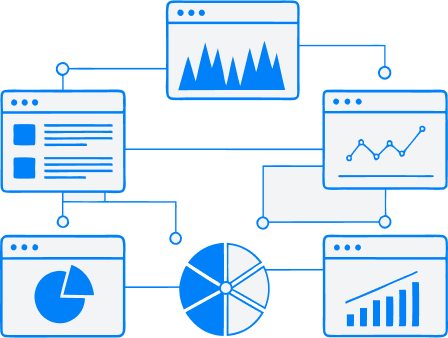Centralized monitoring
Centralized monitoring in clinical trials is a process during which information about key study indicators is collected remotely. This data is then analyzed in order to identify inconsistencies and gaps. Based on this analysis, the overall monitoring plan and strategy can be amended.

Before beginning the study, the team, consisting of specilalists from our clinical, biostatistics and data management departments, defines the key risk indicators for monitoring.
These include:
- Percentage of participants who left the trial
- Percentage of missed visits
- Number of adverse events per participant on the center and study level
- Number of deviations from the protocol on the center and study level
- Number of requests for information on the center and study level
Centralized monitoring allows to:
Centralized monitoring allows full access to clinical study data, which allows to analyze parameters such as range of values, variance of data both within and between centers, as well as the quality and efficiency of centers. By using centralized monitoring data, it is possible to adjust the frequency and number of monitoring visits as well as participant selection more precisely, optimizing the process by reducing costly and laborious visits for data verification (SDV).
iPharma offers centralized monitoring services for all types of multi-center clinical trials, regardless of their scale and complexity.